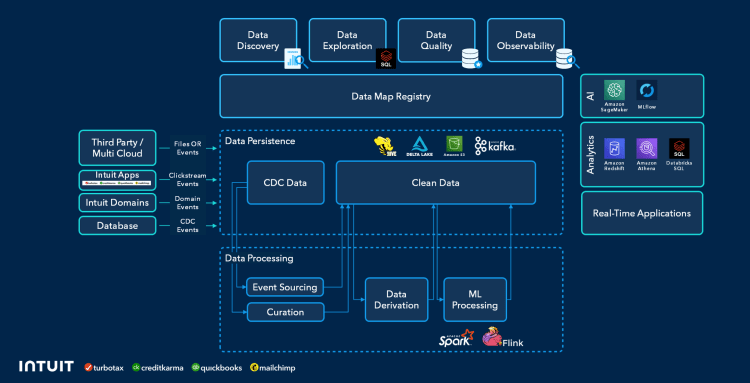In VentureBeat’s reporting on generative AI, one company in particular stands out among enterprise companies for speed and adeptness at deploying the technology at scale. That company is Intuit.
In September, Intuit introduced an LLM-drive assistant, called Intuit Assist, across all of its products, including TurboTax, QuickBooks, Credit Karma, and MailChimp. This demonstrates Intuit’s commitment to implementing AI technology across their entire platform.
Intuit’s Gen AI operating system, announced in June, orchestrates the activity of large language models (LLMs) throughout the company. This comprehensive vision positions Intuit as a leader in the industry, setting them apart from other major companies who have not yet fully embraced this technology.
An Interview with Alon Amit
Recently, I had the opportunity to interview Alon Amit, Intuit’s VP of Product Management, about the crucial role of data management in achieving success with generative AI.
Amit explains that Intuit took several years to establish a best-practice data management layer. This involved integrating, ensuring accuracy, governance, and eliminating duplication of data. By accomplishing this, Intuit was able to enable personalized interactions using LLMs for their 100 million small business and consumer customers.
During our interview, Amit presented a slide showcasing Intuit’s data layer – a model that exemplifies the best practices for data management according to their standards.
Key Insights from the Interview
- The Data Map Registry: Intuit has created a universal repository for every single data asset, both real-time and batch, produced within the company. This includes all data schemas and ensures that assets are well governed. Intuit aims to achieve close to 100% accuracy with this process by the end of next year.
- Culture of caring about “data as a product”: Intuit’s developers, product managers, engineers, and other employees have been instilled with a culture that considers any data generated as a valuable product, not just the data within the products delivered to customers.
- Governance of data schema changes: Intuit ensures that all data schemas, whether click-stream data or third-party data, are governed in a uniform manner. This prevents any disruptions to downstream data systems, especially those required to support generative AI.
- Governed data derivation: Derivation refers to any transformations carried out on source data. Intuit’s developers are notified if a feature they are deriving already exists in the data registry, avoiding duplication and ensuring data integrity.
- Future plans for real-time data derivation: Intuit aims to implement real-time data derivation capabilities by 2024. This will allow the company to track user actions in near real-time, enhancing customer support and more accurately meeting their needs.
It’s important to note that Intuit acknowledges that their pursuit of perfection is ongoing. They are continually working to improve their data management practices and pave the way for even greater success with generative AI.










